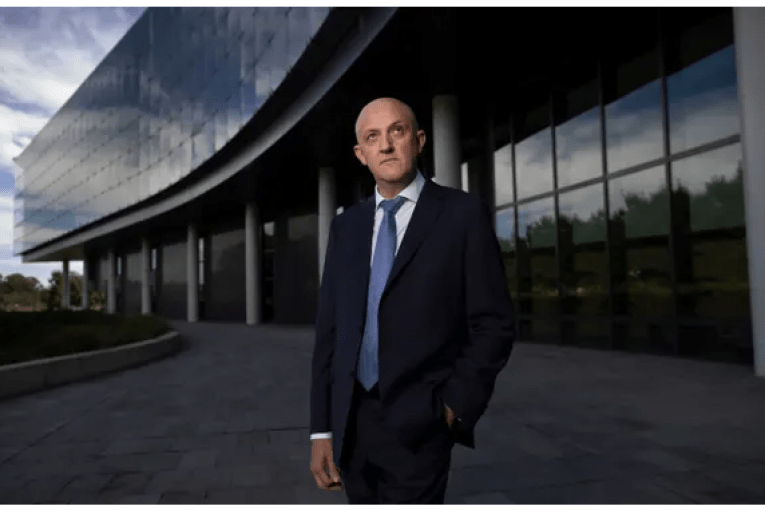If legal advice isn’t what the government wants to hear, just forget the whole thing
The Commissioner hearing evidence about the failed Robodebt collection system got a peek behind the veil of government secrecy last week and was appalled by what she found, writes David Fagan


Commissioner Catherine Holmes is hearing evidence from the so-called Robodebt scandal. (Photo: AAP Image/Pool, Mark Cranitch)
There’s a lot about the Robodebt affair to leave us all appalled. It’s one of the worst pieces of policy of the past decade, creating unreasonable misery for disadvantaged people at a cost of hundreds of millions in compensation and further trashing the declining trust in government.
The scale of the debacle is being unpeeled in the presidential ballroom of Brisbane’s Pullman Hotel, home for now to the Robodebt Royal Commission presided over by former Queensland Chief Justice, The Hon Catherine Holmes, AC, SC who found herself appalled at some of what she heard last week.
While the policy’s name, and resulting royal commission, implies technology failure, the focus right now in this very technical inquiry is on the decisions made by the people who implemented the policy which was designed to recover more than $1 billion from almost 1 million people believed to have been wrongly overpaid government entitlements.
Commissioner Holmes will have a lot to grapple with before she finally reports next April – not least the morality of the scheme, the reliability of the technology and the human decision making behind it – but right now she and her counsel assisting are grappling with what legal basis there was for the scheme. The particular issue is whether it was legal to use an individual’s annual tax data to conclude they may have been overpaid entitlements in any single fortnight.
What’s clear now is that it wasn’t – hence the abandonment of the program in 2020. What the commission has heard in the past week is a succession of instances from creation of the scheme in 2014 where internal advice doubted the legality of robodebt but the human decision makers ignored it.
And in a fascinating passage of evidence last week, Ms Anne Pulford, a principal legal officer who had sounded warning bells for the Department of Social Services, explained what had happened when the department finally sought external advice from the law firm Clayton Utz in 2018. That advice, first in draft format, was described as potentially “catastrophic” for the scheme.
What happened next? On the evidence, nothing. Not a conversation and definitely not any steps to finalise the legal advice, which, according to the evidence, the consulting law firm Clayton Utz had offered to “rework subtly…..but there is not a lot of room for them to do so”.
Actually, one thing did happen. The legal bill was paid. The amount is undisclosed.
While the rest of us were checking our bank accounts or lining up for a new driver’s licence in the wake of the latest tech-enabled debacle last week, the DSS’s Anne Pulford was explaining to the makeshift hearing room that there was nothing extraordinary about the advice reaching such a dead end. “Why not,” asked Ms Holmes’ deadpan Counsel Assisting Justin Greggery, KC. (correct spelling -df)
Ms Pulford: “Because departmental practice is when external advices are obtained, they are obtained in draft and then they are reviewed, and a decision made by the relevant client area as to whether they wish to finalise the advice.”
Mr Greggery: “And if the advice is not finalised, is it treated as not having been given?”
Ms Pulford: “It’s certainly treated as not representing the department’s preferred view and arguably still open to further discussion or comment or potentially a revision.”
At which point Commissioner Holmes had her own questions: “So what do you do? You get an advice in draft and if it’s not favourable you just leave it that way? And then it never represents anything that you deal with? Is that the approach?”
Ms Pulford: “Yes Commissioner.”
Commissioner Holmes: “And is that done regularly in the department?”
Ms Pulford: “It’s certainly happened many times that I have seen it, yes.”
Commissioner Holmes: “I’m appalled.”
We’ll find out just how appalled in coming weeks as the inquiry works its way up the bureaucracy of the government departments that implemented Robodebt before getting to the politicians who stood behind it.
In the meantime, the rest of us can be as appalled as Commissioner Holmes that advice sought and paid for by government is ignored if it doesn’t match what they want to hear. Could only happen in Canberra, couldn’t it?












